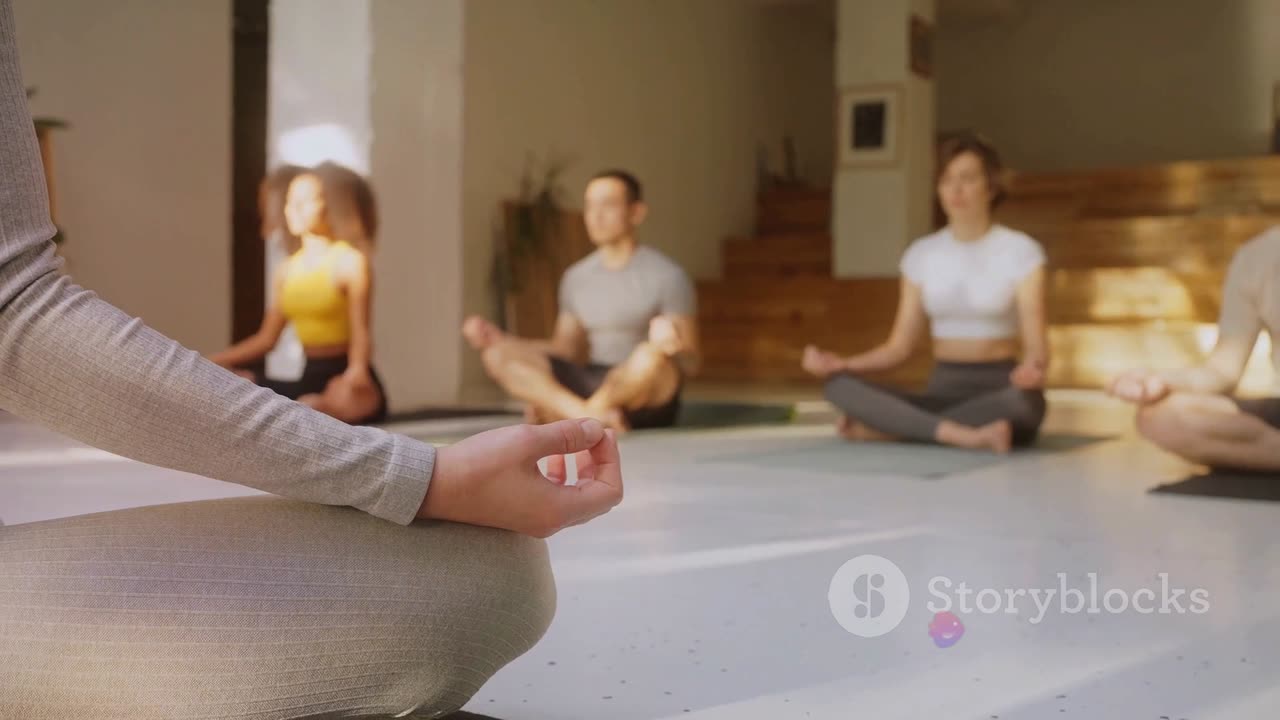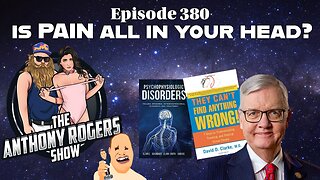Premium Only Content

Mastering Mindfulness 12 Powerful Practice 2024
Mindfulness Meditation; 12 ways to practice
Introduction ;
Mindfulness involves a form of meditation where the emphasis is on cultivating a heightened awareness of one's immediate sensations and emotions. The practice encourages individuals to observe the present moment without attaching interpretations or judgments.
Mindfulness ;
Engaging in mindfulness entails the use of techniques such as controlled breathing, guided imagery, and various other practices aimed at promoting relaxation of both the body and mind. These approaches are intended to alleviate stress. In today's fast-paced world, maintaining good health goes beyond just physical fitness. The interplay between our mental and physical well-being has garnered increasing attention.
Key principles include:
Present Moment Awareness :
Mindfulness encourages you to be fully present in the here and now, rather than dwelling on the past or worrying about the future.
Non-Judgment:
It involves observing your thoughts, emotions, and sensations without passing judgment on them as good or bad. It's about accepting whatever arises with equanimity.
Observation:
You observe your thoughts and feelings as they come and go, recognizing that they are transient and not a fixed part of your identity.
Mind-Body Connection:
Mindfulness often involves paying attention to physical sensations in the body, as they can provide valuable information about your emotional state.
Breath Awareness:
One common practice involves focusing on the breath. By paying close attention to your breath, you anchor yourself in the present moment.
Cultivating Compassion:
Some practices also include developing compassion for yourself and others, fostering a sense of interconnectedness and kindness.
Mindfulness
Managing Physical and Mental health :
Mindfulness has been shown to improve mental and physical health in a number of ways, including:
Reducing stress and anxiety
Improving sleep
Boosting mood
Reducing pain
Improving cognitive function
Strengthening the immune system
Improves physical health
Enhanced fitness
prioritize self - care
Established boundaries
disconnect from technologies
Self care
Mindfulness can be practiced formally through meditation exercises or informally by simply bringing mindful awareness to everyday activities.
Tips,
Here are some additional suggestions for incorporating mindfulness into your routine::
Body Scan:
Either recline or sit in a comfortable position, then mentally traverse your body from head to toe. Notice any areas of tension or discomfort without judgment.
Mindful Eating:
Slow down and savor each bite during meals.
Give careful consideration to the colors, textures, flavors, and aromas of your food. Chew slowly and be fully present with each mouthful.
Nature Walk:
Go for a walk in nature and immerse yourself in your surroundings. Notice the sights, sounds, and sensations of the natural world. Experience the sensation of the ground beneath your feet with each step you take.
Mindful Listening:
Practice active listening when in conversations. Give your full attention to the person speaking without formulating a response in your mind until they've finished speaking.
Mindful Journaling:
Write in a journal about your thoughts and feelings. Allow yourself to express your emotions without judgment. Reflect on your experiences and insights.
Mindful Breathing Breaks:
Take short breaks during the day to focus on your breath for a minute or two. It can help you recenter and reduce stress in busy moments.
Mindful Driving:
While driving, pay attention to the sensation of your hands on the steering wheel, the movement of the car, and the sights and sounds around you. Minimize distractions.
Mindful Technology Use:
Be mindful of your screen time. Put away your devices and disconnect from screens periodically to be fully present in the real world.
Mindful Movement:
Engage in activities like yoga, tai chi, or stretching mindfully. Pay attention to the sensations in your body as you move and breathe.
Mindful Gratitude:
Each day, take a moment to acknowledge and appreciate three things you are grateful for. Engaging in this practice can assist in redirecting your attention towards positive aspects of life.
Mindful Self-Compassion:
Treat yourself with kindness and compassion. When you make a mistake or face a challenge, acknowledge your feelings without self-criticism. Offer yourself the same support you would give a friend.
Conclusion:
Mindfulness is a simple yet powerful practice that can have a profound impact on your health and well-being . Incorporating mindfulness into your daily routine can have significant benefits for your mental and physical health, as well as your overall well-being.
-
 UPCOMING
UPCOMING
Anthony Rogers
7 hours agoEpisode 380 - Is Pain All In Your Head?
39 -
 1:46:17
1:46:17
Glenn Greenwald
5 hours agoGlenn Takes Your Questions on Censorship, Epstein, and More; DNC Rejects Embargo of Weapons to Israel with Journalist Dave Weigel | SYSTEM UPDATE #505
80.1K4 -
 LIVE
LIVE
Jokeuhl Gaming and Chat
6 hours agoHelldivers 2 - Spreading Democracy w/ Ryker
64 watching -
 27:47
27:47
Stephen Gardner
1 hour ago🚨BREAKING: Trump FURIOUS Over Kamala’s Latest Move – SHOCKING Details!
1.81K19 -
 8:00:13
8:00:13
Dr Disrespect
10 hours ago🔴LIVE - DR DISRESPECT - GEARS RELOADED GLOBAL LAUNCH - CRUSHING LOCUST
97.6K13 -
 LIVE
LIVE
Reolock
2 hours agoWoW Classic Hardcore | One level at a time
27 watching -
 LIVE
LIVE
Spartan
5 hours agoScrims vs FaZe then Ranked + Expedition 33
9 watching -
 57:00
57:00
BEK TV
23 hours agoOpen Range
1.6K1 -
 1:06:27
1:06:27
BonginoReport
4 hours agoBig Bad JB Threatens Trump! - Nightly Scroll w/ Hayley Caronia (Ep.120) - 08/26/2025
95.4K46 -
 1:02:26
1:02:26
Kim Iversen
4 hours agoIran Rejects Nuclear ‘Spy’ Inspectors — War Next?
40.2K93